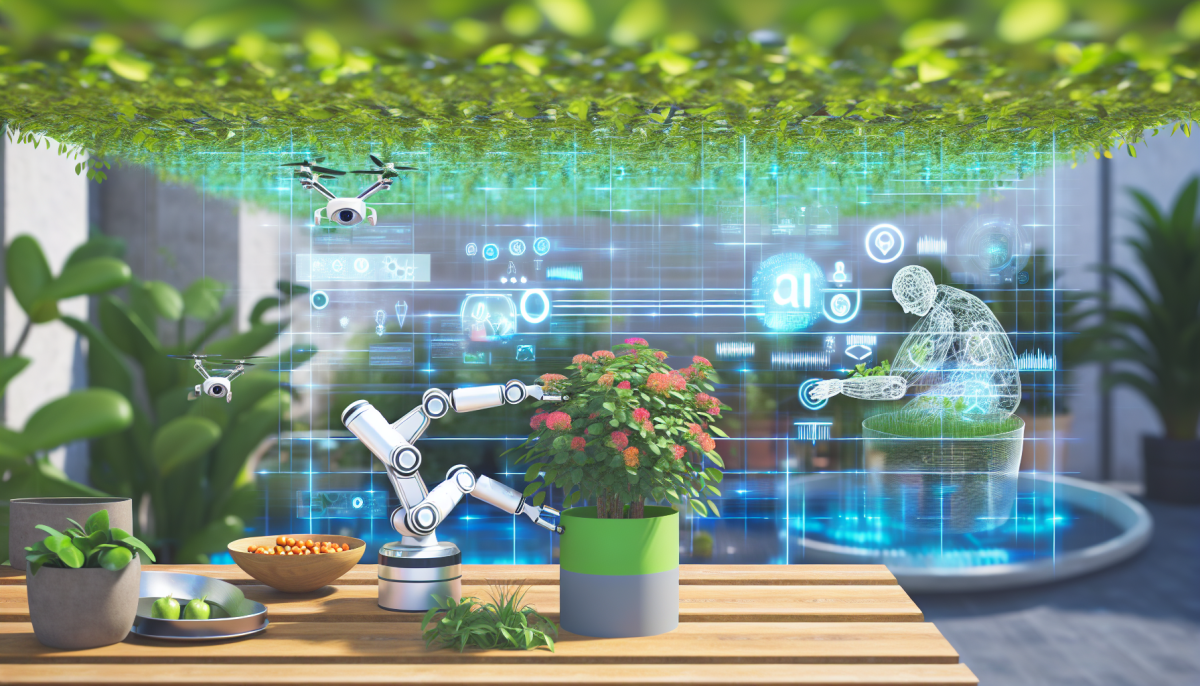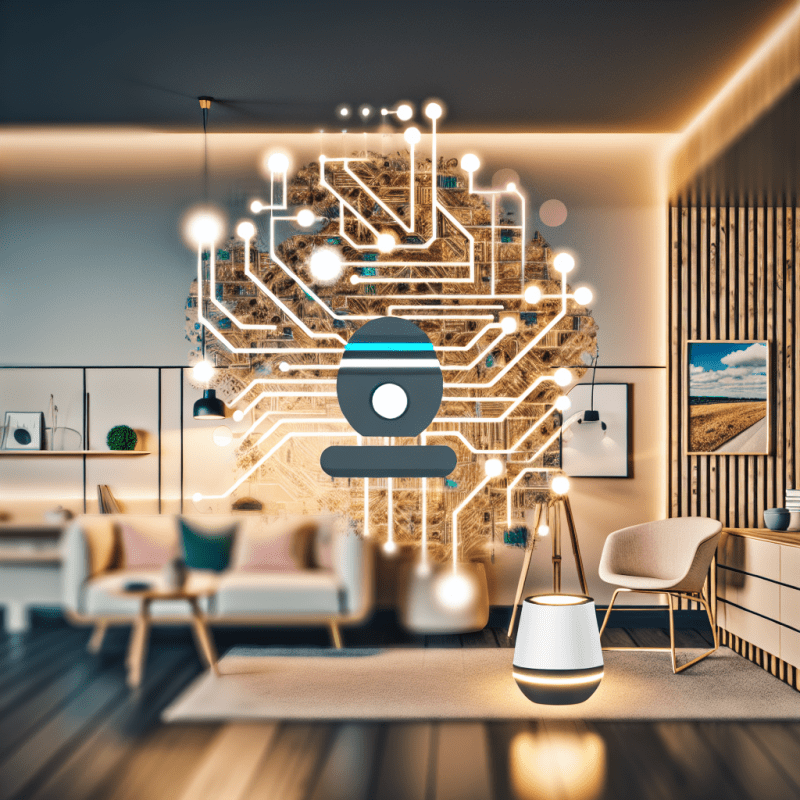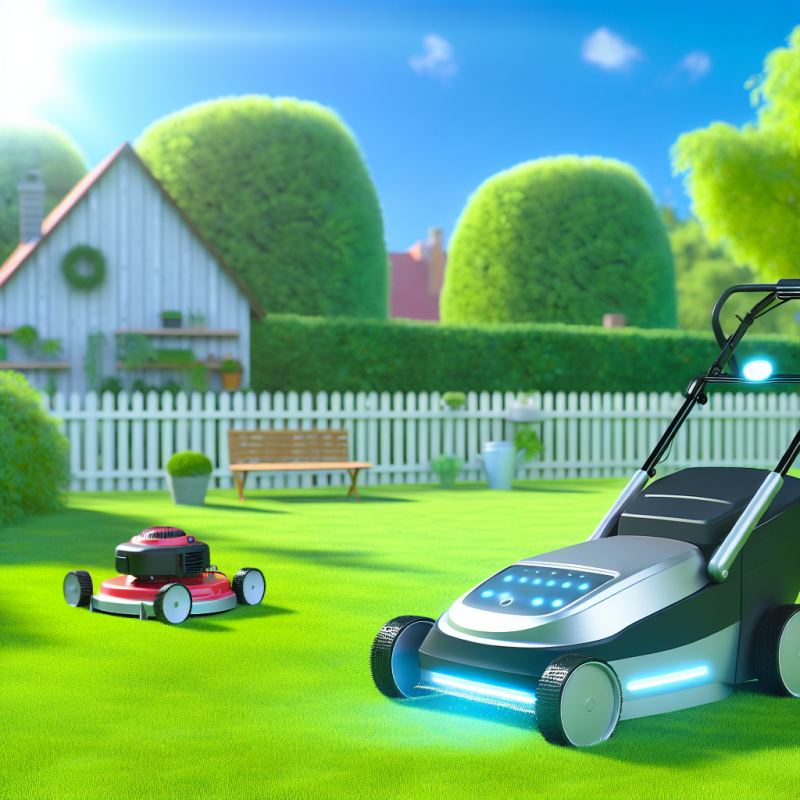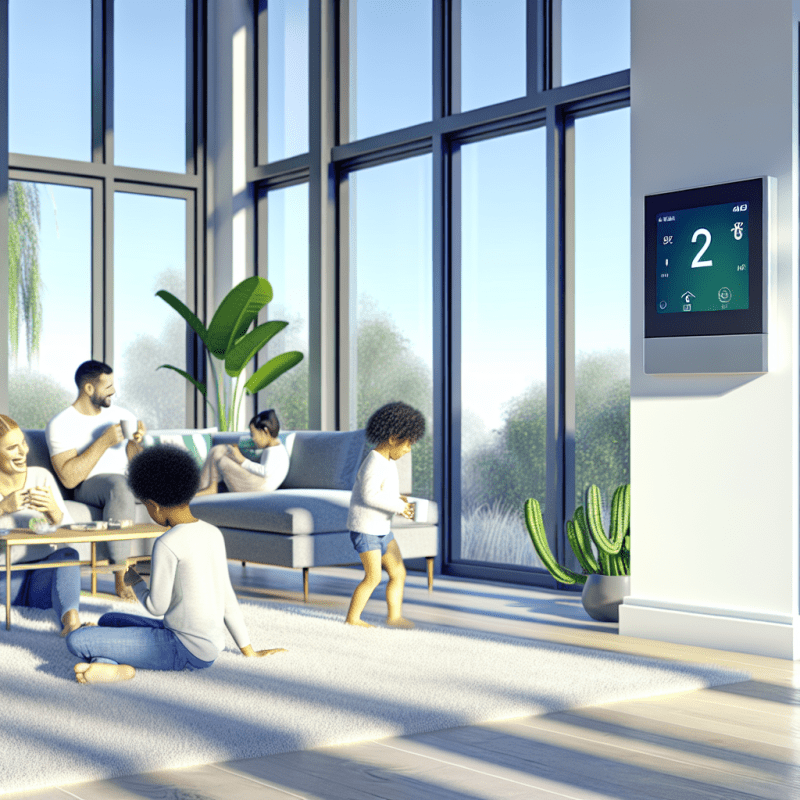Smart gardens are revolutionizing the way we care for our plants. By integrating technology with gardening, these innovative systems make it easier for anyone, from novice gardeners to seasoned green thumbs, to nurture plants effectively. Smart gardens utilize sensors, automated watering systems, and AI-driven applications that help monitor the environment and provide real-time feedback on plant health.
One of the primary benefits of smart gardens is their ability to optimize plant care. These systems can analyze various factors such as soil moisture, light levels, and temperature, allowing for precise adjustments in water and nutrient delivery. This intelligent monitoring not only promotes healthier plants but can also lead to time and resource savings. Instead of guessing when to water or fertilize, gardeners receive tailored recommendations based on actual plant needs.
Another significant advantage is the convenience that comes with smart gardens. Many systems can be controlled remotely via smartphone apps, which means gardeners can check on their plants and make adjustments from anywhere. Whether you're at work or on vacation, you can ensure that your plants are thriving with just a few taps on your phone. This level of accessibility empowers more people to enjoy gardening, even if they have busy lifestyles.
Additionally, smart gardens encourage environmental sustainability. By using sensors to gauge when and how much to water plants, these systems promote efficient water use and reduce waste. This not only benefits individual gardens but also contributes to broader efforts in conserving resources and protecting the environment. In a world increasingly focused on sustainability, smart gardens stand out as a practical approach to nurturing both plants and the planet.
How AI Simplifies Plant Care
In today’s fast-paced world, technology is making our lives easier in many ways. When it comes to gardening, artificial intelligence (AI) is stepping in to simplify plant care, making it a breeze for both novice and experienced gardeners. With AI-powered tools and apps, you can easily monitor your plants' health, ensuring they get the right attention they need to thrive.
One of the most remarkable ways AI helps with plant care is through precise monitoring. Smart sensors can be placed in the soil to track moisture levels, temperature, and even nutrient content. These devices collect data over time and send real-time updates to your smartphone. If your plants need water or nutrients, the system can alert you instantly, ensuring that you never forget to care for your green friends.
AI also assists in identifying plant diseases and pests. With advanced image recognition technology, apps can analyze photos of your plants to detect any potential issues. This means that even if you are not an expert in gardening, you can quickly receive guidance on how to treat any problems. By diagnosing issues early, you can take action before they escalate, keeping your garden healthy and vibrant.
Furthermore, AI can help you optimize the best growing conditions for your plants. By analyzing factors like sunlight, humidity, and temperature, AI algorithms can suggest the ideal location for each plant in your garden. This personalized approach helps you maximize growth and yields, allowing you to enjoy a flourishing garden with less effort.
Essential Features of Smart Gardening Tech
Smart gardening technology is revolutionizing how we care for our plants. One of the essential features of this tech is the use of sensors that monitor soil moisture, temperature, and light levels. These sensors provide real-time data, enabling gardeners to understand exactly what their plants need. Instead of relying on guesswork, gardeners can make informed decisions based on accurate readings, ensuring their plants thrive.
Another exciting feature is automated irrigation systems. These systems can be programmed to water plants at specific times or triggered by the sensors when the soil gets too dry. This not only saves valuable time for busy gardeners but also conserves water by ensuring that plants receive only what they need. With smart irrigation, gone are the days of over-watering or under-watering plants.
Smart gardening tech also integrates seamlessly with mobile apps, allowing users to control their garden from anywhere. With just a few taps on a smartphone, gardeners can monitor plant health, adjust watering schedules, and receive alerts about potential issues. This connectivity adds a layer of convenience and ensures that plant care can fit into any lifestyle, whether you're at home or away.
Lastly, the use of artificial intelligence (AI) takes smart gardening to the next level. AI can analyze data collected from various sensors to provide personalized recommendations for each plant. It can suggest the best fertilizers, optimal growing conditions, and even predict potential pest problems. With AI-powered insights, gardeners can take proactive measures to keep their plants healthy and flourishing.
Tips for Creating Your Smart Garden
Creating a smart garden can be both fun and rewarding. To start, choose the right plants for your environment. Research which plants thrive in your climate and consider their sunlight and water needs. This will help you formulate a plan that fits your garden space and lifestyle.
Next, invest in smart gardening devices that make plant care easier. Smart sensors can monitor soil moisture, temperature, and pH levels, providing real-time data right to your smartphone. This information helps you determine when to water or fertilize your plants, ensuring they get the care they need without overdoing it.
Automation is another key component of a smart garden. Automatic watering systems can take the guesswork out of hydration. Set schedules based on your plants' needs, or use a drip irrigation system to deliver water directly to the roots. With these tools, you can enjoy a healthy garden without the constant maintenance.
Additionally, consider integrating AI-based gardening apps. These applications can analyze your garden's health and offer tailored advice. Some even recognize plant diseases or pests through images, giving you actionable solutions to keep your garden thriving. Harnessing technology will help you become a more successful gardener.



